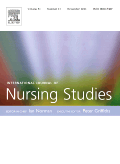The role of the nurse in the process of medication prescription and ordering diagnostic tests and clinical examinations has intensified worldwide. For the International Council of Nursing (ICN), these actions are innovative elements that contribute to advanced nursing practice (ICN, 2011). The term prescription by nurses encompasses a diversity of practices within which we can highlight threemodels: the independent or substitute prescriber, the semi-autonomous or complementary prescriber, and the group protocol (Patient Group Directions) (Consejo General de Enfermerı´a, 2006; Kroezen et al., 2011). Among the countries where prescription and the requisition of clinical examinations by nurses is already consolidated, the United Kingdom (UK), Sweden, United States, Canada, Australia, New Zealand, South Africa and Ireland stand out (Van Ruth et al., 2008; Krozen et al., 2012; Latter et al., 2010). The UK in particular, has both an extensive form of nurse prescribing, embracing all three models above, and a well developed evidence base from research into its acceptability and effectiveness. But not all countries have progressed so far. In this editorial we consider the implications of this evidence base for countries where the practice is still developing. We focus on our country, Brazil, as an example and use the international evidence and reviews to illuminate the current situation of nurses in Brazil and offer recommendations for progress.
Leia artigo completo – artigo
Artigo publicado no Jornal ELSEVIER – International Journal of Nursing Studies –www.elsevier.com/ijns



